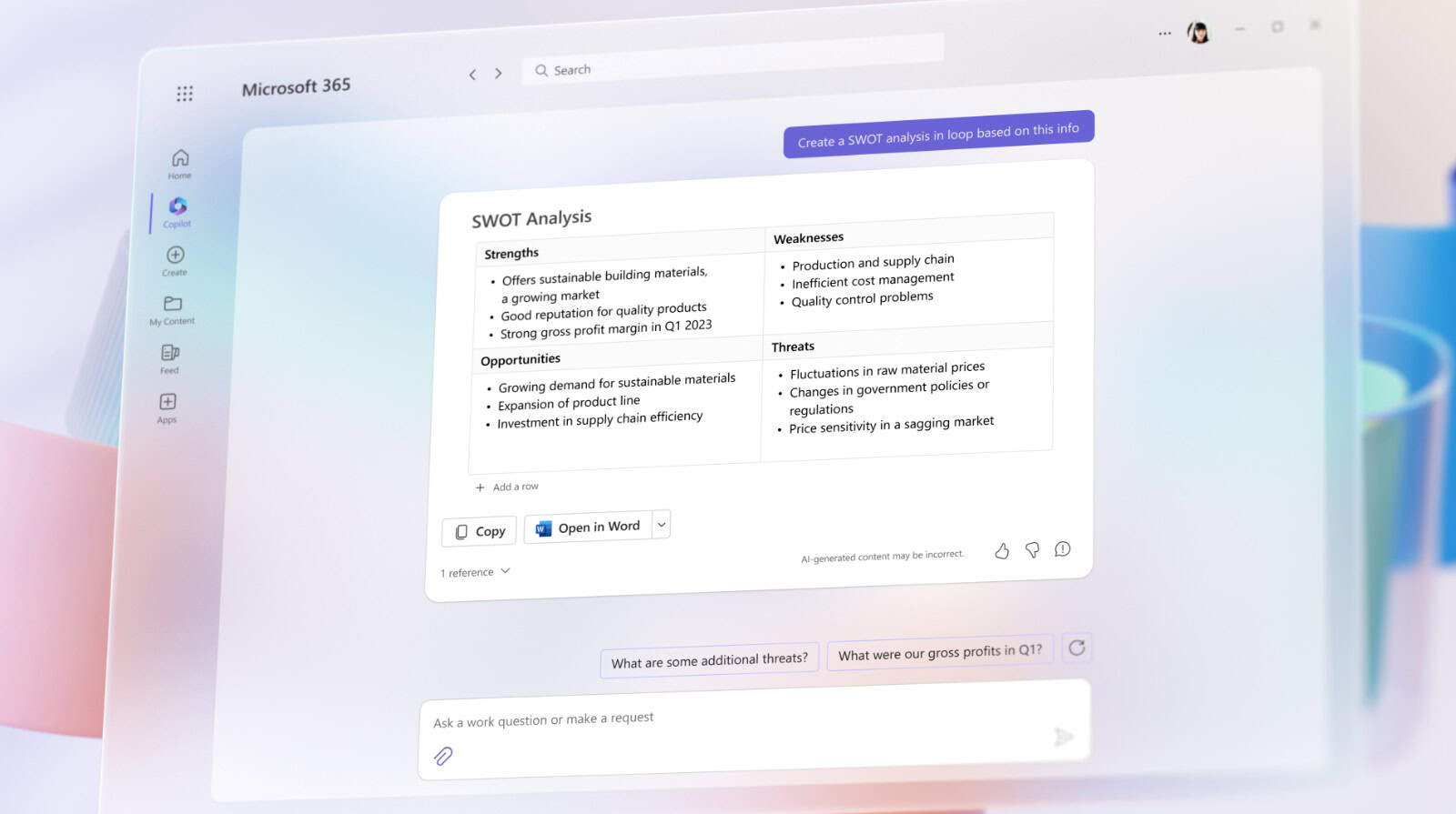Artificial Intelligence (AI) has rapidly evolved in recent years, transforming the way businesses operate. A Microsoft-sponsored study revealed that when reviewing AI for small businesses, nearly 80% of SMBs are interested in harnessing its power in their operations.
Interestingly, it’s often the employees themselves who are driving this AI revolution to enhance their job efficiency. In this blog, we break down the importance of AI for small businesses and the critical considerations surrounding its implementation.
The Employee-Driven AI Revolution
SMBs might not have the vast resources of tech giants, but they are proving to be agile in adopting AI solutions. Microsoft research shows that when looking at AI for small businesses in particular, employees are the ones taking the initiative to leverage AI for their daily tasks, resulting in increased productivity. This grassroots approach is changing the way SMBs do business, offering a competitive edge that was once largely unattainable for smaller organisations
Enhancing Productivity With AI For Small Businesses
The cornerstone of AI for small businesses lies in its ability to boost productivity. Employees can automate repetitive tasks, analyse data with precision, and rapidly generate valuable insights. This newfound efficiency not only saves time but also allows employees to focus on more strategic aspects of their work. As a result, SMBs can be much more competitive towards larger, more powerful organisations.
The Considerations: Security, Privacy, and Compliance
While AI offers numerous benefits, it comes with a set of considerations that demand careful attention. These considerations encompass security, privacy, and compliance, all of which are crucial aspects of the successful implementation of AI for small businesses.
Security
Security is paramount due to the ever-increasing complexity and occurrence of cyber attacks on organisations. SMBs must ensure that their AI systems are robustly secured. This involves protecting sensitive data, preventing unauthorised access, and regularly updating AI software.
Ensuring data security involves encrypting data both during its transit and while at rest. This encryption guarantees that, in the event of a breach, stolen data remains unintelligible to unauthorised parties. Moreover, strict access controls should be implemented to limit access to AI systems, reserving access for authorised personnel responsible for managing sensitive data and AI configurations.
Regular security audits and vulnerability assessments are also vital to identify and address potential weaknesses within the AI infrastructure, reinforcing the overall security of the system.
Privacy
Privacy concerns are on the rise driven by the widespread collection and analysis of data. SMBs must respect user privacy and adhere to relevant data protection regulations such as GDPR
To uphold user privacy, SMBs should practice data minimisation, collecting only the data necessary for AI functions while anonymising or pseudonymising data whenever possible to shield user identities.
Transparency is key in maintaining trust; SMBs should be open with both customers and employees about data collection and usage, clearly displaying how AI is utilised and what data is processed. Furthermore, obtaining explicit consent from individuals before collecting and processing their data for AI purposes is not only ethically responsible but also legally required under many regulations.
Compliance
Compliance with industry-specific regulations and standards is crucial for SMBs. Failure to comply can result in severe legal consequences.
SMBs must stay informed about industry-specific regulations, ensuring their AI systems align with these standards. Maintaining comprehensive records of AI processes and data handling practices is essential to demonstrate compliance during audits.
It’s imperative to invest in employee education, ensuring that staff are well-informed about compliance requirements and how they relate to AI usage within the organisation. This comprehensive approach to compliance helps SMBs navigate the intricate regulatory landscape while mitigating potential legal risks.
The Way Forward: A Step-by-Step Guide
Navigating the opportunities and considerations of AI for small businesses can be challenging, but it’s not insurmountable. This step-by-step guide covers all the essential considerations:
- Assessment and Readiness: Evaluate your organisation’s current state, including its AI readiness, infrastructure, and data assets.
- Goal Setting: It’s vital to define clear objectives for implementing AI for small businesses. Understand what you want to achieve, whether it’s improving efficiency, customer satisfaction, or cost reduction.
- Data Strategy: Establish a robust data strategy that encompasses data collection, storage, security, and ethical considerations.
- AI Adoption: Choose the right AI tools and technologies that align with your objectives and budget. Consider whether cloud-based solutions or on-premises setups are more suitable.
- Implementation and Testing: Deploy AI for small businesses gradually, and rigorously test them to ensure they meet your expectations.
- Security and Compliance: Prioritise security and compliance at every stage of the adoption of AI for small businesses.
- Monitoring and Optimisation: Continuously monitor AI systems, gather feedback, and make necessary improvements to maximise their effectiveness.
- Education and Training: Train your employees on AI best practices, ethical considerations, and security protocols.
In conclusion, the Microsoft-sponsored research reveals that AI is an upcoming force within the SMBs globally. Employees are taking the initiative to leverage AI for enhanced productivity, making SMBs more competitive.
However, this transformative power comes with essential considerations, including security, privacy, and compliance. By adhering to best practices SMBs can unlock the full potential of AI while safeguarding their operations and customers. As technology continues to advance, embracing AI is no longer a luxury but a necessity for SMBs to stay competitive.
Akita is an experienced developer of AI and Microsoft solutions. Find out more about Microsoft Solutions us, and get in touch to discuss AI solutions:
Read More




